More cities pushing to replace Columbus Day
In this Monday, Oct. 10, 2011 file photo, Ferntree, of Duncan, British Columbia, a member of the Cowichan Tribes, holds her hand up as a prayer is given during a Native American protest against Columbus Day in Seattle.
Almost 530 years after Christopher Columbus made landfall in the Bahamas, the debate over whether to replace the national holiday created in his honor with one that celebrates the native peoples of America is still open.
As of the beginning of October, at least eight states and 130 cities in the U.S. had passed legislation to replace the federal holiday of Columbus Day with Indigenous Peoples Day, but Chicago’s celebration still remains intact.
Columbus Day is celebrated in many parts of the Americas and in 25 U.S. states as an official legal holiday. It was declared a federal holiday in 1934, and since 1970 has been observed on the second Monday of October.
While Columbus’ fleet made landfall on one of the Bahamian Islands — likely San Salvador — in 1492, he wasn’t actually the first explorer to set foot in America. Some historians believe that an Irish Monk, Saint Brendan, sailed to North America in the sixth century. And other historians have concluded that Vikings from Greenland, led by Leif Erikson, sailed to a place he called “Vinland” — now believed to be the modern day’s Canandian province of Newfoundland — around 1000 A.D.
And since a 1970 United Nations conference on discrimination against indigenous peoples, there has been a push to recognize that millions of people were already living in the Americas. Critics of Columbus Day argue the conventional historical narrative of discovery is actually one of conquest and colonial settlement, in which Columbus enslaved, colonized and killed thousands of indigenous people in the Americas upon arrival.
“Most Americans probably don’t think much about Columbus Day, except perhaps that it’s a federal holiday and an excuse to get a day off from work or school,” said Laura Kina, director of Critical Ethnic Studies at DePaul and member of the Ryukuyaun indigenous community. “It is not appropriate to celebrate Christopher Columbus Day, as his history is a part of an ongoing violent settler colonialism of the Americas. Native peoples and indigenous folks continue today to resist being disposed of their sacred lands.”
Many cities and states in the country have been successful in replacing the holiday.
Last Tuesday, Washington, D.C. passed legislation to rename the federal holiday to Indigenous Peoples Day. The council pushing this legislation, declared it to be an emergency to rename the holiday in time for Oct. 14.
Democratic Wisconsin Gov. Tony Evers signed an executive order last Tuesday mandating the change of the holiday.
With more than 100 cities and eight states that have replaced Columbus Day with Indigenous Peoples Day, some aldermen want Chicago to be among them.
In August, legislation seeking to replace Columbus Day with Indigenous Peoples Day was introduced by 33rd Ward Alderman Rossana Rodriguez-Sanchez and supported by members of advocacy group Chi-Nations Youth Council.
The current draft of the ordinance says the celebration of Columbus Day in Chicago “perpetuates violence against the Indigenous Peoples and other marginalized communities through the promotion of American Exceptionalism, which continues to be grounded in the ideologies of white supremacy.”
“The abolishment of Columbus Day promotes a more equitable and inclusive city for all Chicagoans,” it says.
A similar piece of legislation was introduced by Alderman Carlos Ramirez-Rosa, D-35th, and Ameya Pawar, D-47th, in September 2016; it failed to pass City Council in May. Ramirez-Rosa is also a co-sponsor of the new ordinance, which is currently sitting in the Health and Human Services Committee.
Fawn Pochel, education coordinator of Chicago’s American Indian Center, said that the bill, if it passes, would shed light on marginalized indigenous voices.
“It’s to push towards disproving this myth of discovery and help reconcile the indigenous identity that was taken away from a lot of folks, and to develop a sense of solidarity and accurate portrayals of history from more perspectives of just white men,” she said.
Proponents of Columbus Day, meanwhile, argue that replacing Columbus Day would eliminate a day of ethnic pride for Italian Americans and could be considered culturally insensitive as well.
The National Italian American Foundation, for example, said in a statement on its website that it “opposes public campaigns that advocate for [Columbus Day’s] elimination as a federal holiday.”
Joseph Cullen, a spokesperson for Catholic fraternal organization Knights of Columbus, told The DePaulia that the organization is not at all opposed to the celebration of Indigenous Peoples Day and that it is not a “neither, nor” situation.
“Why not [have] both?” he said.
Cullen said Indigenous Peoples Day should not be celebrated at the expense of Columbus Day, suggesting instead that each could be celebrated on different days.
In the absence of an official holiday commemorating indigenous people, a number of Chicago and Illinois institutions have held land acknowledgement ceremonies to recognize the traditional stewardship by indigenous residents of the land on which now sit the Field Museum, Northwestern University, UIC and more.
The American Indian Center’s Pochel said that while these acknowledgements are a first step toward reconciliation, they don’t go far enough.
Lisa Poirier, an associate professor of religious studies at Depaul who focuses on Native American religion, said many Americans haven’t yet reckoned with the history of colonialism, and in some cases they don’t want to.
“I think that changing Columbus Day to Indigenous Peoples Day would force people to take a look at the history of colonialism in North America and to perhaps take a look at what Christopher Columbus was like as a human being,” she said. “I don’t think that non-Natives are necessarily excited about doing that because its difficult and painful and it is a shameful history — people like to celebrate an imagined and sort of mythic understanding of what they think America is.”
Yolibeth Sandoval, DePaul senior and chapter representative for Chicago’s International Indigenous Youth Council, said listening to indigenous voices is the first step in being recognized.
“I think for what’s helped me to find some healing in everything that has happened here in the city of Chicago is acknowledgement,” she said. “Acknowledgement is the first thing — being listened to, no matter who you are and where you’re at.”


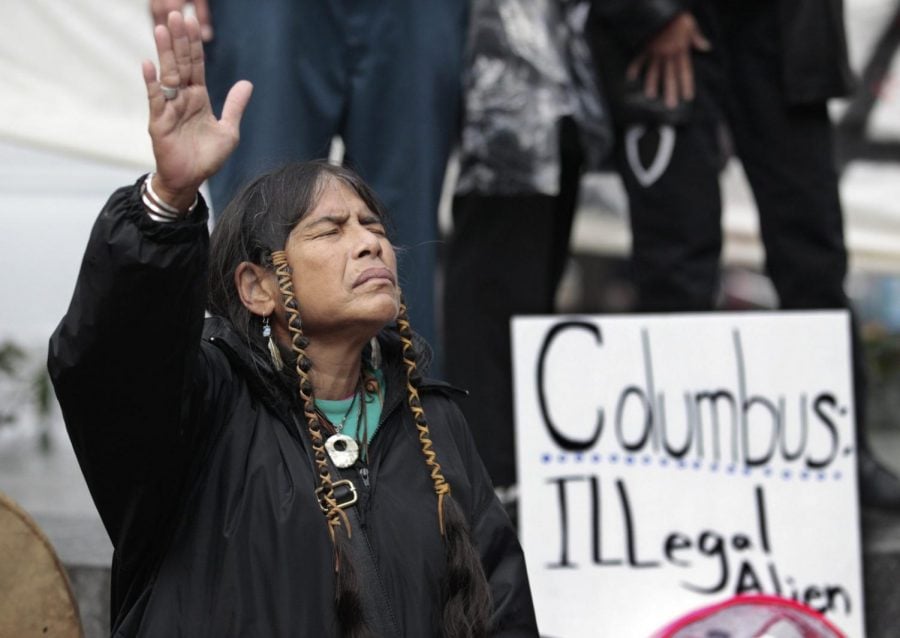




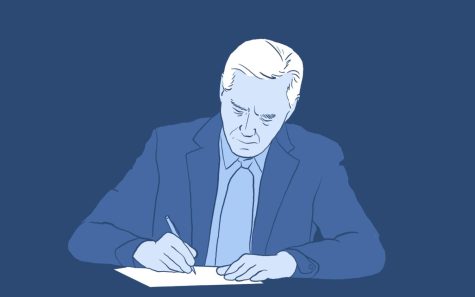
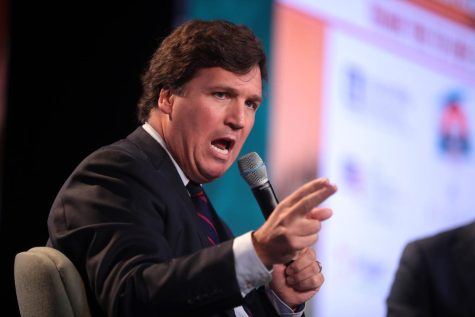
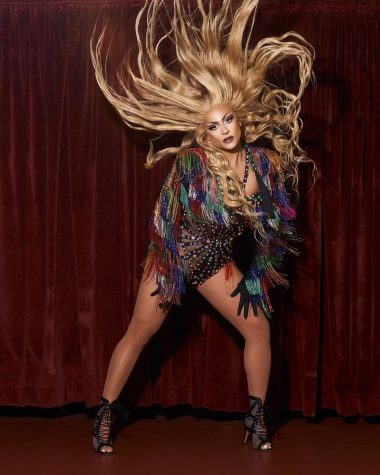
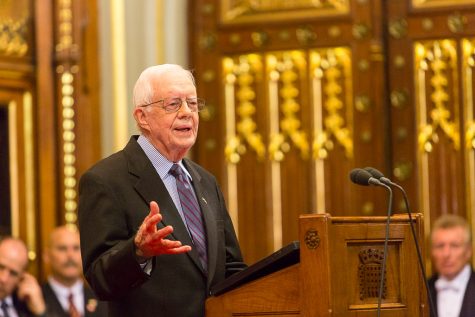
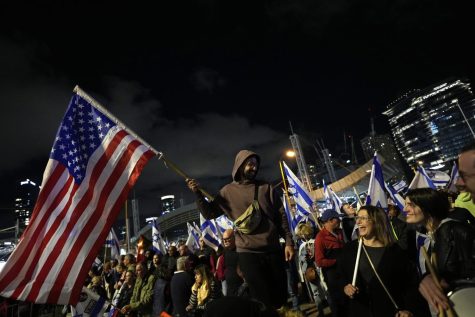
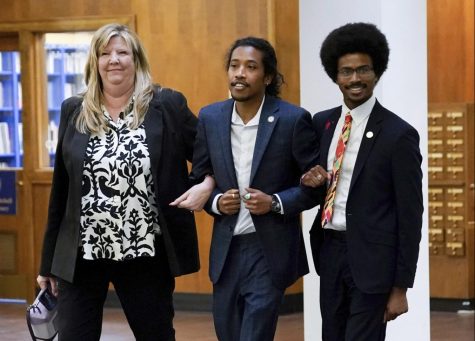
Veronica DiMario • Oct 14, 2019 at 9:53 am
While I support Indigenous Peoples Day, I cringe at the attempt to “abolish” or “replace” Columbus Day. I think Indigenous Discovery Day, or something similar, would keep the Italian/Spanish pride of undertaking the high risk journey, but and celebrate the indigenous culture that was discovered. Then we could take the focus away from the colonialism and slavery that followed.
Let’s transform the day into a new concept that includes the best of both worlds, starting a new history in the way we claim to want. “Abolishing” and “replacing” are the very concepts we find wrong with Columbus himself.